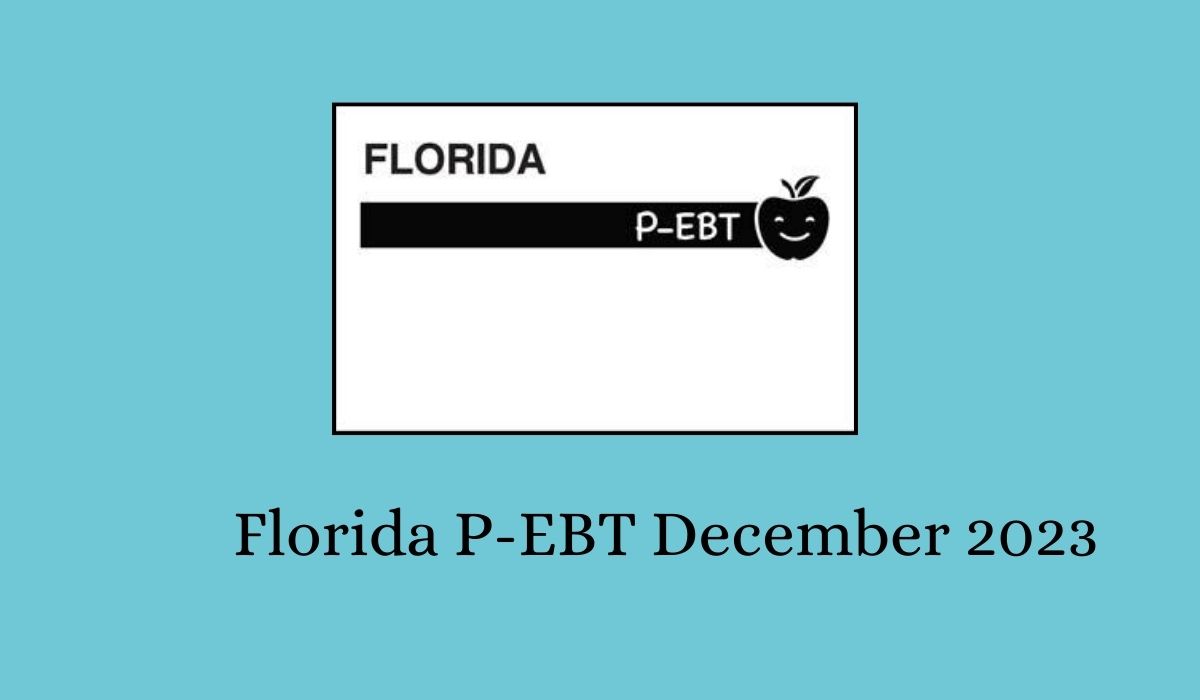As 2023 draws to a close, Florida’s Pandemic Electronic Benefit Transfer (P-EBT) program continues to play a crucial role in supporting families affected by the ongoing economic challenges.
The P-EBT program, a response to the COVID-19 pandemic, has been instrumental in providing nutritional assistance to families with children who would have received free or reduced-price meals at school.
As the program enters its third year, let’s take a closer look at the Florida P-EBT December 2023 and how it will continue to support families in need.
Background of P-EBT in Florida
The P-EBT program was introduced as a part of the federal response to the COVID-19 pandemic, aimed at addressing food insecurity among students during school closures.
In Florida, the Department of Children and Families (DCF) administers the program, ensuring that eligible families receive additional support to compensate for the loss of school meals.
The P-EBT program has been a lifeline for many families struggling to make ends meet during these uncertain times.
Eligibility and Enrollment
As of December 2023, the eligibility for P-EBT in Florida includes children who were eligible for free or reduced-price meals through the National School Lunch Program (NSLP) in the 2022-2023 school year or those who applied for these meals by June 30, 2023.
This includes students in community eligibility schools and those directly certified through programs like TANF, SNAP, or Medicaid. Notably, families do not need to apply for P-EBT; eligibility is determined based on existing school meal program enrollment.
Benefit Distribution
The 2023 Summer P-EBT program in Florida provides a one-time payment of $120 per eligible child. The distribution of these benefits began in July 2023 and continued through September, to complete the issuance to all eligible children by December 31, 2023.
Benefits are disbursed via EBT cards, functioning similarly to debit cards, and can be used at most grocery stores, farmers markets, and for online purchases at specific retailers.
Impact and Usage
The P-EBT program has been a lifeline for many families in Florida, helping to alleviate the financial strain of purchasing additional meals for children who would typically receive them at school.
The flexibility of the program allows families to purchase a wide range of food items, including seeds and plants to grow food, thereby promoting healthy eating habits and food sustainability.
Challenges and Solutions
Despite its success, the program has faced challenges, such as ensuring that eligible families are aware of and receive their benefits. The DCF has undertaken efforts to streamline the distribution process and provide clear communication to families.
Additionally, the department has set up dedicated resources for families experiencing issues with their P-EBT benefits.
Conclusion
As 2023 comes to an end, the Florida P-EBT program stands as a testament to the state’s commitment to supporting its residents during challenging times. By providing essential nutritional assistance to families, the program not only addresses immediate food insecurity but also contributes to the overall well-being and health of children across the state.
As we look forward to 2024, the lessons learned and successes achieved through the P-EBT program will undoubtedly inform future initiatives aimed at supporting vulnerable populations in Florida.
